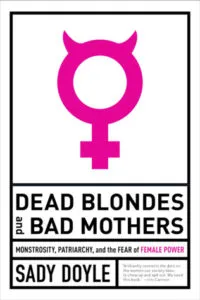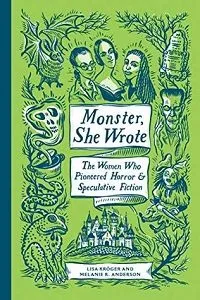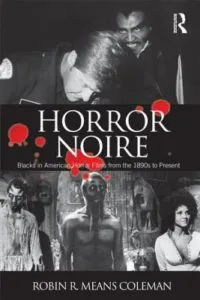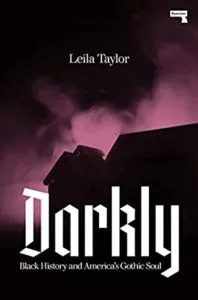
5 Books About Horror to Help You Cope With Anxiety
This content contains affiliate links. When you buy through these links, we may earn an affiliate commission.
In these unsettling times, I am one of the few people in this world who takes solace in horror. Horror films and books have always been a way for me to understand my anxieties and fears. At a very young age, my subconscious developed the unfortunate habit of being overactive at night. That translated into me having nightmares every single night, something that I still deal with it even if not on the same scale. Later, when I was older, I came to understand that there was a name for that: anxiety and panic disorder. Mine explicitly took the shape of overly realistic bad dreams. Knowing that, you would probably think that I stayed away from horror most of my life. Well in a weird turn of events, it had the complete opposite effect.
I grew up with a lot of cousins, most of whom were quite older than me, and who all loved horror. I remember watching The Exorcist, Scream, and an absurd amount of Japanese horror films, which became quite popular in Brazil in the early 2000s. One of the most formative experiences of my childhood was watching the 2004 Japanese film The Grudge, starring Sarah Michelle Gellar. I was about to turn 9, and all my cousins got together during summer vacation in one house. I wasn’t supposed to be watching the movie, but after my mom went to sleep, my sister, who was 18 and should have known better, let me watch the film with everyone. Needless to say, I was scared out of my tiny mind. The continuous pranks that ensued for the next few days traumatized me just a little. I still remember my sister literally putting a hand on my neck when I was washing my hair in the outside shower, just like the iconic scene in the movie.
However, what these movies mainly did was pique my curiosity. By the time I was 12, I could not stop reading the horror classics. Slowly and secretly migrating to more scary things like Stephen King, True Crime, and Shirley Jackson. And so a life long love for the horror genre was born. As we all know, these are weird times we live in, and with the pandemic outbreak, it just seems to be getting more bizarre by the hour.
If you are like me, you might find yourself with a lot of anxiety in these troubled times, and maybe again like me, you turn to the darker aspects of the human mind for solace. Horror is an art, and all artwork it is human; it is flawed and subjective. But the reason why I find horror so comforting, more specifically the process behind it, is that it shows me that I am not alone in my fears and anxiety. It is comforting to see that lots of people have found great ways to deal with the monsters under the bed. And the ones in the back of our minds. So, if you are curious about the genre, wanna know more about the brains behind it, or just want to know some fun facts about horror as a cultural staple, check these books out!
Doing a sort of feminist review into the culture and history behind the uncanny and horrific, Doyle looks into feminine tropes, psychological research, and cultural imagery to understand the many patriarchal facets surrounding horror as a human experience. In Dead Blondes and Bad Mothers, you will have a great cultural round-up from the bible up until current day slasher films. Discussing it through the lives and writings of great thinkers, how the female image and mind have been repressed through fear to gain control or to contain the power of the horrific.
If you were looking for a comprehensive list of all the pioneers of horror and the uncanny, look no further. Besides being a fantastic guide to the genre, Kröger and Anderson give you mini-biographies on each author with dedicated reading lists to all of them. A must-have if you’re looking to expand your library and TBR on the genre. Plus, it is beautifully illustrated, so it also makes for a lovely gift.
With a unique social critique approach to the genre, Coleman explores Blackness in America true the lenses of Horror films. From King Kong to Candyman, Horror Noire aims to trace ideologies and discourse around race through the history of American cinema. Arguing for Horror as a genre that enables the representation of the African American experience and emancipation from the mainstream social consciousness. Plus, a documentary of the same name based on the book was released in 2019 and features modern masters like Jordan Peele. Highly recommend!
If you are looking for a book that is more focused on a specific aspect of horror, this is the book for you. O’Meara’s biography of the creator of The Creature from the Black Lagoon touches on the many overarching issues that plague the film industry (and, more specifically, the horror industry) to this date. Like sexism and sexual harassment. But most importantly, O’Meara writes a long-overdue biography on one of Hollywood’s pioneers, Milicent Patrick, who was the only woman to draw and create a silver screen classic monster. Patrick was a trailblazer who had her accomplishments and legacy stolen by petty male co-workers. A vibrant and unique woman for her time, Milicent Patrick is a remarkable inspiration for all seeking to pursue a career in film, or in any creative field, really. Plus, O’Meara’s own personal experience working in the industry and as a long time fan of the genre gives you a unique perspective into the hardships faced by Patrick and the many women who have followed in her footsteps, both as movers of the industry or only lovers of it.
Weaving in themes of race, art, music, literature, and history, Leila Taylor’s part memoir, part social critique analysis of U.S. American culture is terrific. Outlining the many remnants that are still left behind in the country’s dark history and that inform its ever-present Gothic influences. A self-proclaimed “Black Goth,” Taylor intertwines a separate aspect of the Gothic genre with her life growing up in America as a means to not only understand her own journey through life. But also make sense of the history and culture that influence and surround her every day. Discussing everything, from the author’s favorite ghost stories to first-hand testimonies from the Jim Crow era. Darkly is the kind of book that will leave you with a new-found perspective for both the horror genre and mainstream culture.



 Dead Blondes and Bad Mothers: Monstrosity, Patriarchy, and the Fear of Female Power
Dead Blondes and Bad Mothers: Monstrosity, Patriarchy, and the Fear of Female Power Monster, She Wrote: The Women Who Pioneered Horror and Speculative Fiction
Monster, She Wrote: The Women Who Pioneered Horror and Speculative Fiction 






